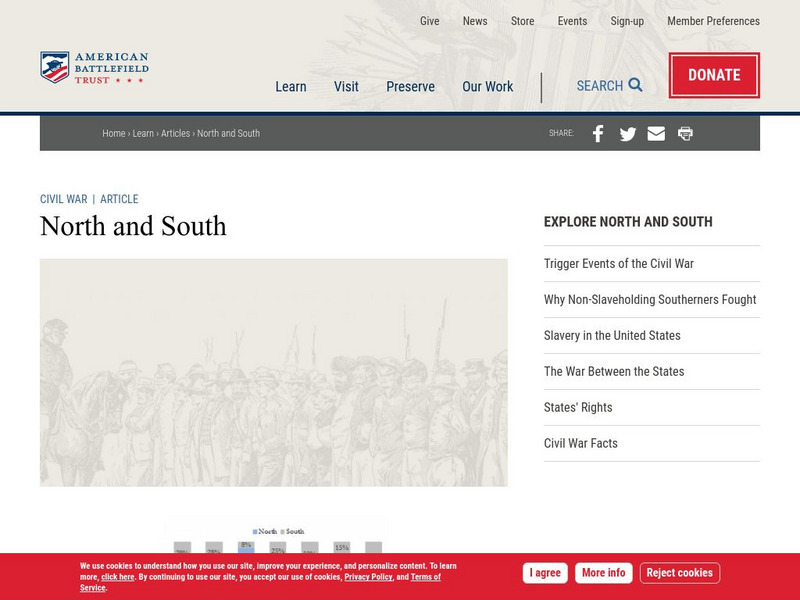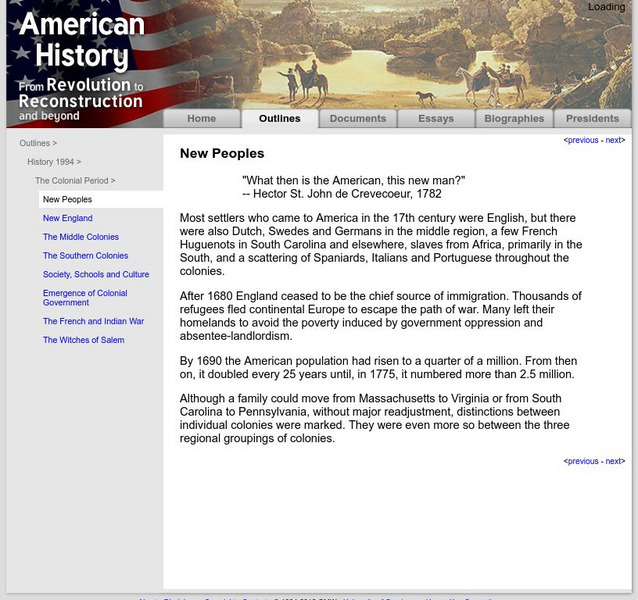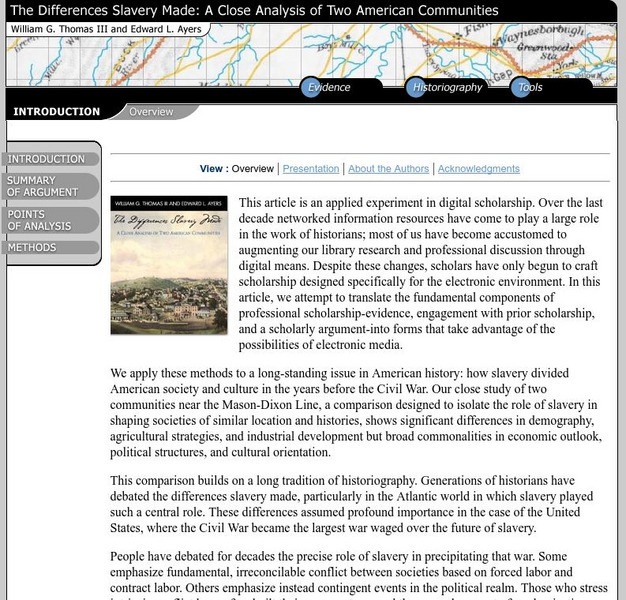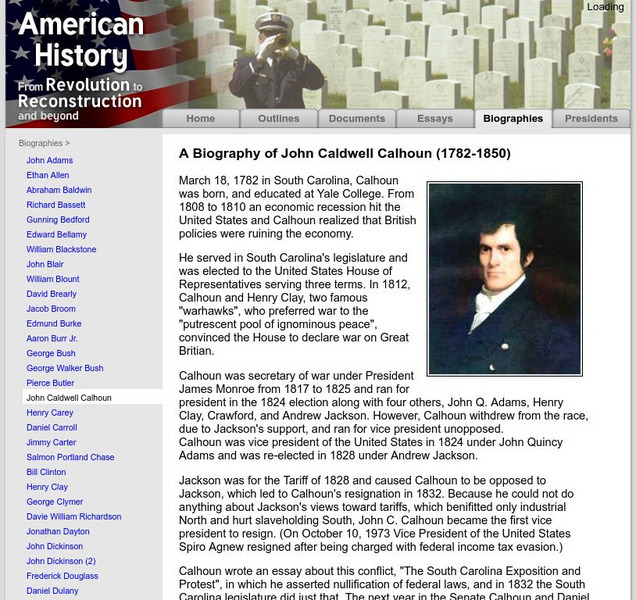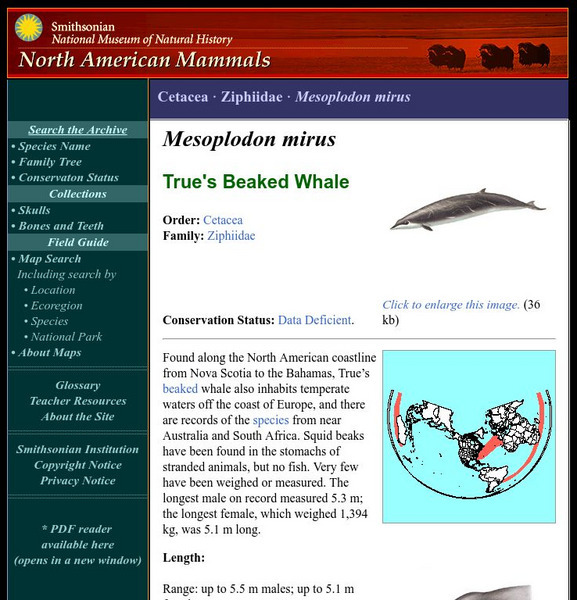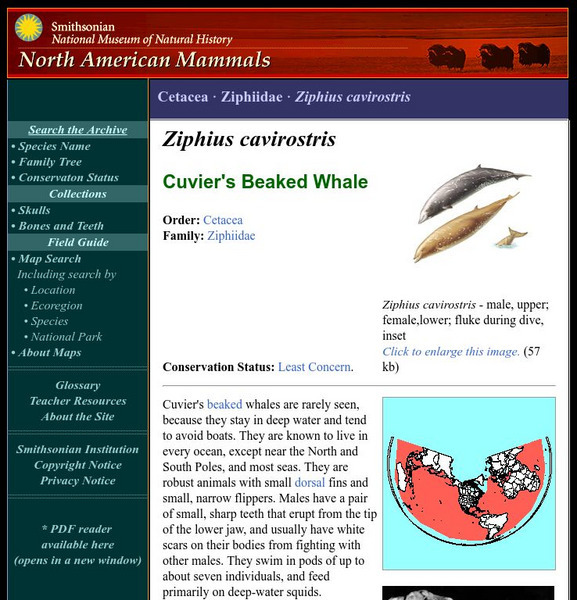Hi, what do you want to do?
University of California
The Civil War: The Road to War
The United States Civil War resulted in the highest mortality rate for Americans since the nation's inception. Delve deeper into the causes for the drastic separation of states with a history lesson plan that features analysis charts,...
Film Education
Glory
If you are previewing the film Glory for your young historians, this packet may help you spark ideas for discussion and offer some interesting facts and quotations that may add to your presentation of this Civil War narrative. It...
American Battlefield Trust
American Battlefield Trust: Civil War: North and South: Different Cultures, Same Country
The Civil War that raged across the nation from 1861 to 1865 was the violent conclusion to decades of diversification. Gradually, throughout the beginning of the nineteenth century, the North and South followed different paths,...
University of Groningen
American History: Outlines: Colonial Economy
Whatever early colonial prosperity there was resulted from trapping and trading in furs. In addition, the fishing industry was a primary source of wealth in Massachusetts. But throughout the colonies, people relied primarily on small...
Kenyon College
Kenyon College: North by South: The Jenkins' Orphanage Bands
If you are interested in the music for the Cakewalk, come check out the Jenkins' Orphanage Band. They played a mix of ragtime and march. Lots of cool photos.
Countries and Their Cultures
Countries and Their Cultures: Multicultural America: Korean Americans
Provides an overview of the traditional culture and lifestyle of Korean Americans. (Note: Content is not the most current.)
Kenyon College
Kenyon College: North by South: Augusta Savage
A detailed biography of the artist, Augusta Savage. This site includes images of her work, and links to related artists.
University of Groningen
American History: Outlines: Southern Colonies
In contrast to New England and the middle colonies were the predominantly rural southern settlements: Virginia, Maryland, North and South Carolina, and Georgia.
Countries and Their Cultures
Countries and Their Cultures: American Isolates
The students will learn about the culture and the people of American Isolates that live in the rural south of the United States.
University of Groningen
American History: Outlines: New Peoples
Most settlers who came to America in the 17th century were English, but there were also Dutch, Swedes and Germans in the middle region, a few French Huguenots in South Carolina and elsewhere, slaves from Africa, primarily in the South,...
University of Virginia
American Historical Review: The Differences Slavery Made
An in-depth scholarly investigation on the differences slavery made in the shaping of societies in the North and South by using two similar communities, one north and one south of the Mason-Dixon Line.
Digital History
Digital History: The Civil Rights Movement Moves North
Summers of the late 1960s was a time of widespread violence and rioting in the nation's major inner cities. What was previously thought of as a problem of the South had spread nation-wide and was now demanding immediate attention.
Countries and Their Cultures
Countries and Their Cultures: South and Southeast Asians of the United States
A webpage with some brief information about the culture of South and Southeast Asians who live in the United States.
Son of the South
Son of the South: The American Indian
Discusses the way of life and geographical distribution of various Indian tribes that existed at the time that Columbus reached North America.
University of Groningen
American History: Outlines: A Divided Nation
This page from the American Revolution Project of the University of Groningen discusses how the 1850s were a time of conflicting ideas between North and South regarding the expansion of slavery. Scroll down to the third paragraph and...
Carnegie Museum of Natural History
Carnegie Museum: North South East West: American Indians and the Natural World
Web companion site to the Alcoa Foundation Hall of American Indians exhibit at the Carnegie Museum of Natural History. It focuses on American Indians' relationships with the natural world and explores four different visions: the Tlingit...
Other
Native Languages of the Americas: Native American Headdresses: Facts for Kids
Describes the different types of headdresses worn by Native American groups across North, Central and South America. (Note: some links to larger images no longer work.)
University of Groningen
American History: Biographies: John Caldwell Calhoun
This biographical resource on John Calhoun points out Calhoun's resignation, the first vice-president to resign from active office. Calhoun opposed Jackson's affirmative stand on the Tariff of 1828 which favored the Industrial North over...
Other
Sc Reptiles & Amphibians: Eastern & Florida Cottonmouth
South Carolina Reptiles & Amphibians profiles the eastern cottonmouth. A great site for photos-- both the eastern and Florida cottonmouth are pictured.
Other
Encyclopedia of American Foreign Policy: Civil War Diplomacy
An article by noted historian, Kinley Brauer, discusses the role of foreign policy for both the North and the South in the Civil War. An interesting, and often forgotten, aspect of the war.
Smithsonian Institution
National Museum of Natural History: American Mammals: True's Beaked Whale
Found along the North American coastline from Nova Scotia to the Bahamas, True's beaked whale also inhabits temperate waters off the coast of Europe, and there are records of the species from near Australia and South Africa. Squid beaks...
Smithsonian Institution
National Museum of Natural History: American Mammals: Swamp Rabbit
The Swamp Rabbit is the largest North American cottontail, but has relatively short ears in proportion to its size. It forages for grasses, sedges, some tree seedlings, and other plants in marshy lowlands of the south-central United...
Smithsonian Institution
National Museum of Natural History: American Mammals: Northern Pocket Gopher
Of all North American pocket gophers, the Northern Pocket Gopher has the widest distribution, across most of the western United States and south-central Canada, and it occurs in the greatest variety of habitats. Only habitats with a...
Smithsonian Institution
National Museum of Natural History: American Mammals: Cuvier's Beaked Whale
Cuvier's beaked whales are rarely seen because they stay in deep water and tend to avoid boats. They are known to live in every ocean, except near the North and South Poles, and most seas. Learn more about the Ziphius cavirostris, more...







